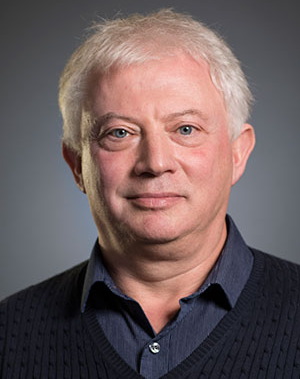
The Daggett Laboratory focuses on studies of both bacterial and mammalian proteins involved in amyloid diseases. We use a variety of biophysical, biochemical, analytical, biological and computational techniques to investigate the conformational changes behind these devastating diseases. In turn, we use what we learn for the design and development of diagnostics and therapeutics. Read More

We design and use microfluidic devices to better mimic the real microenvironment of nerve and cancer cells when we culture them outside of the organism. We are microfluidic! Examples of questions that interest us are how neurons find their targets during development (axon guidance), how they establish their connections (synaptogenesis), and how we sense odors (olfaction), among other projects. We also build microfluidic devices that allow us to personalize chemotherapy and devices to study cancer stem cells. Read More

The Zalatan research group seeks to understand how biological signaling networks are organized at the molecular level to process, integrate, and coordinate signals. We focus on individual reaction steps at key decision points in cell signaling pathways, using a wide range of tools from biochemistry, enzymology, and synthetic biology. This approach allows us to draw connections between molecular events and cellular behaviors, providing a framework to identify new drug targets and to engineer synthetic pathways for cell-based therapeutics and devices. Read More

Our group studies the combustion synthesis of nanostructured material for application in energy and biomedical fields. We focus on low-cost production and self assembly of carbon and metal oxides aerosol gels. Read More

The Nath lab is interested in characterizing and controlling functionally relevant protein dynamics. We use a broad set of techniques from biophysics and pharmacology, including single-molecule fluorescence and molecular simulations, to better understand and engineer the behavior of enzymes and transporters involved in drug metabolism; emerging protein therapeutics; and aggregation-prone intrinsically disordered proteins implicated in major neurodegenerative disorders. Read More

The Human Photonics Laboratory (HPL) works to advance the frontier of optical technology in the areas of human performance, cancer detection, and treatment. The HPL has historical ties with the Human Interface Technology Lab at the University of Washington where the ideas for the immersive VR pain distraction, scanning fiber endoscope, and the optical projection tomographic microscope originated. Read More

Dr. Korshin’s research interests include corrosion and metal release in drinking water, environmental electrochemistry, advanced oxidation processes, development of new approaches to quantify and model the degradation of pharmaceuticals and other trace-level organic contaminants in wastewater, characterization of natural organic matter and its reactions with halogens, on-line methods to monitor drinking water quality and environmental chemistry of radionuclides. He has published almost a hundred refereed publications, many of them in leading journals such as Water Research and Environmental Science & Technology. Read More

Our lab is developing molecular agents and systems for photoacoustic and ultrasonic molecular imaging. Also, we look at integrated therapeutics for molecular-level theransotics (i.e., integrated diangostics and therapy). Read More

MolES-related research interests: Molecular design and engineering through application of machine learning and Data Science methodologies. Bioprospecting for new molecules and industrial microbes.
MolES-related education interests: Data Science, scientific software design & engineering, reproducible computational research. Read More

The Berndt lab develops fluorescent biosensors for optogenetic approaches by utilizing structure guided and high throughput protein engineering. We aim to detect the activity of neurotransmitter, neuromodulators, hormones, ions and intracellular signaling molecules in life tissue and behaving animals. These sensors will provide multidimensional real time information of the current state of neurons and neuronal networks. Our goal is to identify impaired network dynamics in rodent models for neurological disorders. However, these protein tools are universally applicable and we seek to expand applications into other cell types such as cardiac, pancreatic and stem cells. Read More